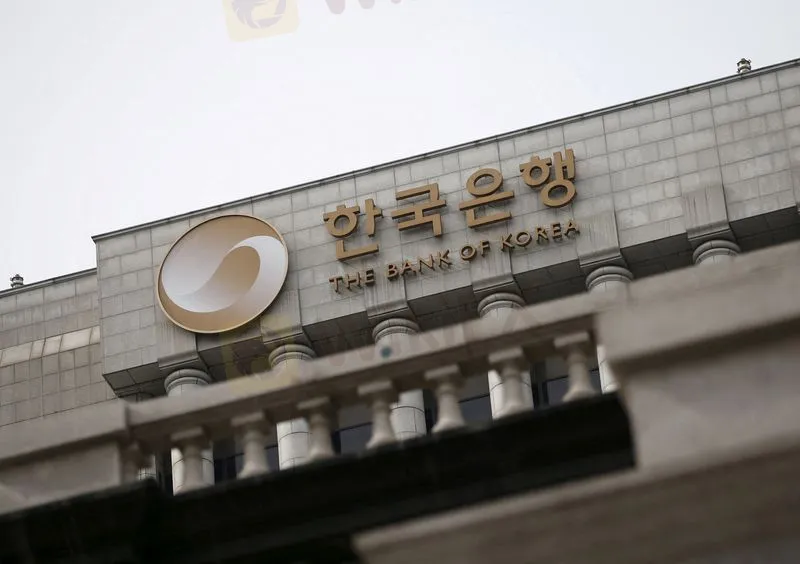简体中文
繁體中文
English
Pусский
日本語
ภาษาไทย
Tiếng Việt
Bahasa Indonesia
Español
हिन्दी
Filippiiniläinen
Français
Deutsch
Português
Türkçe
한국어
العربية
South Korean inflation expectations at near decade high - survey
Abstract:A key measure of inflation expectations among South Koreans rose in May for a fourth consecutive month to its highest in nearly a decade

A key measure of inflation expectations among South Koreans rose in May for a fourth consecutive month to its highest in nearly a decade, a central bank survey found on Tuesday, two days ahead of its policy meeting.
South Koreans expect consumer inflation to average a median 3.3% over the next 12 months, up from 3.1% in April, touching its highest since October 2012, the Bank of Korea's monthly survey showed.
The finding comes just before the central bank's monetary policy review on Thursday. The BOK has raised rates by a total of 100 basis points in four steps since August last year from a record-low 0.50% to fight inflation.
In April, annual consumer inflation in Asia's fourth-largest economy quickened far more than expectations to hit a more than 13-year high of 4.8%, prompting analysts to increase their bets for further tightening.
The central bank also said on Tuesday the consumer sentiment index dipped to 102.6, its lowest since August last year, from 103.8 in April. Please download WikiFX for more forex news.
The sentiment index still stood above the long-term average of 100 separating optimism and pessimism about the future.
More than 2,300 households in urban areas participated in the survey, which polled for inflation expectations and consumer sentiment among other topics, between May 10-17.
Disclaimer:
The views in this article only represent the author's personal views, and do not constitute investment advice on this platform. This platform does not guarantee the accuracy, completeness and timeliness of the information in the article, and will not be liable for any loss caused by the use of or reliance on the information in the article.
Read more

Inflation is Here—How Will It Hit Stocks, Forex, Crypto, and Commodities?
Inflation is a force that ripples through every corner of the financial world, reshaping investment landscapes, shifting market sentiment, and altering the trajectory of economies. From Wall Street to the foreign exchange market, from digital assets to raw materials, inflation's impact is far-reaching. Traders who fail to understand its influence risk being caught off guard, while those who adapt can seize profitable opportunities.

Oil Prices at $90 to $100 Could Push Philippines Inflation Beyond Target
Rising oil prices at $90 to $100 per barrel may push Philippines inflation above the 2-4% target in 2025-2026, impacting food, transport, and electricity costs.

What’s Driving Malaysia’s Inflation in 2025?
Inflation in Malaysia is projected to rise to as much as 2.8% in 2025, driven by domestic policy adjustments, wage increases, and external market fluctuations.

This Economic Indicator Sparks Speculation of a Japan Rate Hike!
The latest data shows that Japan’s base wages in November rose by 2.7% year-on-year, marking the largest increase in 32 years, fueling speculation about a potential BOJ rate hike, but Governor Kazuo Ueda’s dovish remarks in December have shifted market expectations toward a potential delay in policy adjustments.
WikiFX Broker
Latest News
Brazilian Man Charged in $290 Million Crypto Ponzi Scheme Affecting 126,000 Investors
Become a Full-Time FX Trader in 6 Simple Steps
ATFX Enhances Trading Platform with BlackArrow Integration
Decade-Long FX Scheme Unravels: Victims Lose Over RM48 Mil
What Can Expert Advisors Offer and Risk in Forex Trading?
5 Steps to Empower Investors' Trading
How to Find the Perfect Broker for Your Trading Journey?
The Top 5 Hidden Dangers of AI in Forex and Crypto Trading
The Most Effective Technical Indicators for Forex Trading
Indian National Scams Rs. 600 Crore with Fake Crypto Website
Currency Calculator






